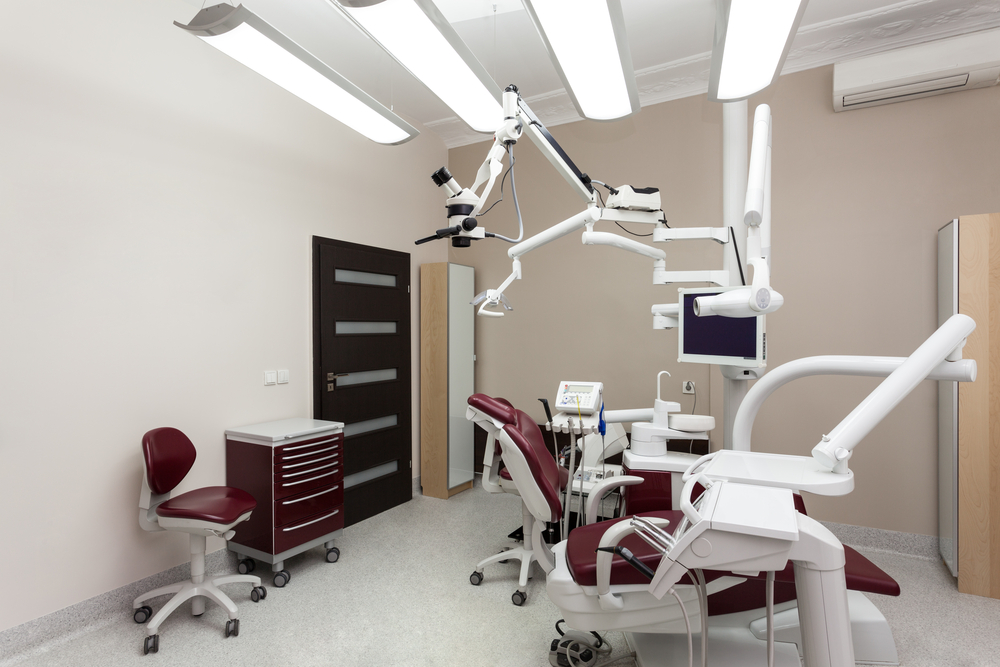
A dental support organization (DSO) can be a big help in taking some of the stress out of your day-to-day practice. These organizations will purchase your practice and then handle all of the non-clinical aspects of running the business for you. As you can imagine, selling to a DSO involves giving up a large amount of control. In this post, we'll take a look at what you will be getting and what you will be giving up should you choose to sell your practice to a DSO.
You know that you shouldn't enter a business agreement with someone that you don't know anything about, but you may not know what you should be looking for when evaluating a DSO that is interested in purchasing your practice. Here is a list of major things that you should consider.
Do they have reliable capital?
One of the biggest advantages of selling to a DSO is that it frees you from the managerial and financial work of running a business. You should ask for financial background information to verify that the company can afford to take on and run your business effectively.
Do they have a good reputation?
You can't run a dental practice without money, but you also can't run one without experience. Talk with other practices that have worked with the DSO and examine how their practices are currently run. Both the input from the sellers and the reviews of their patients post-sale can give you some insight into how the DSO will run your practice.
How is the company culture?
The new company will have a different way of operating than yours. They may have different payment terms for your patients or different restrictions on your employees. It is important that you take a look at how the company operates and evaluate how these differences will affect your staff and your patients.
Whether it is an existing business or an emerging one, selling to a DSO comes with a list of pros and cons. You should carefully weigh the upsides and the downsides of a sale before agreeing to one.
Pros
Cons
A DSO will typically want you to stay on as a dentist for at least 1-3 years in order to smooth out the transition process. In fact, you might receive a delayed payment which is also called an earn-out. In addition to whether or not you are willing to stay on, there are some other questions you may want to ask yourself about your post-sale role.
You should also be certain that there are no non-compete clauses that may prevent you from practicing somewhere else should you choose to. If the clauses exist, how long do they last? Are you willing to make that sacrifice?

There's more to consider about your potential exit from the practice than just your earn-out period. If you find yourself extraordinarily unhappy after the sale, what are the penalties for leaving before the earn-out period? Will they allow you to stay on after the earn-out period? You want to be clear with the DSO about your future plans and ensure that you are on the same page.
When you do decide to leave, will the DSO help you to find your replacement? Your patients have built up a lot of trust in you. When you leave, you'll likely want to make sure that they are in good hands. Being able to play a role in selecting the replacement will go a long way towards honoring the trust of your patients.
If you decide that you no longer want to be a dentist for the practice, what will you do next? Will the DSO allow you to find another career path within their network? This could mean becoming a dentist at another one of their locations or working as a consultant for the company. Know your future options.
This is a repeat of many of the points that have already been brought up, but some of them bear repeating. Selling to a DSO is absolutely the right decision for many people, but you want to make sure that you are one of those people before you pull the trigger on the sale. Take a look at the list of things that you will be giving up and be certain that each of them is worth it.
If you need help deciding whether or not a DSO is the best option for your practice, or if you need help navigating the legal process involved in selling a dental practice to a DSO or to a private practice, contact the legal experts at Dental & Medical Counsel today.
Additionally, if you would like to learn more about DSOs and what they value, read our article on Dental Practices that DSOs Value the Most.

Stay updated with industry news!
1904 Olympic Blvd, Suite 240
Walnut Creek, CA 94596
Phone: 925-999-8200
Fax: 925-884-1725
frontdesk@dmcounsel.com
| Monday | 8:00AM - 6:00PM |
| Tuesday | 8:00AM - 6:00PM |
| Wednesday | 8:00AM - 6:00PM |
| Thursday | 8:00AM - 6:00PM |
| Friday | 8:00AM - 6:00PM |
| Saturday | Closed |
| Sunday | Closed |